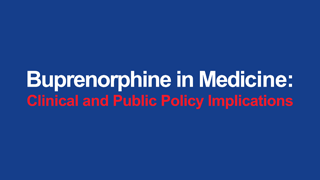Factors associated with willingness to participate in a heroin prescription program among injection drug users
DOI:
https://doi.org/10.5055/jom.2005.0043Keywords:
prescription heroin, methadone maintenance therapy, injection drug use, treatmentAbstract
Randomized controlled trials of prescription heroin have shown success in reducing drug-related harm among chronic opiate injection drug users (IDUs) in several European nations. We sought to explore willingness to participate in a heroin trial among a well-characterized North American cohort of IDUs, and therefore performed analyses of factors associated with willingness to participate in a prescription heroin trial among IDUs enrolled in the Vancouver Injecting Drug Users Study (VIDUS). Of 410 current heroin injectors followed between May and November 2002, injecting heroin frequently (more than once daily) [odds ratio (OR) 1.33; 95 percent confidence interval (CI) 1.06 to 1.69] and being enrolled in methadone maintenance therapy (MMT; OR 1.33, 95 percent CI 1.06 to 1.69) were associated with willingness to participate in a trial. In subanalyses, statistical associations with willingness to participate in a trial among current MMT users were frequent injection of heroin (OR 2.12, CI 1.16 to 3.88) and speedballs (OR 2.57, CI 1.02 to 6.48), frequent crack cocaine use (OR 1.84, CI 1.11 to 3.06), lending of syringes (OR 3.22, CI 1.08 to 9.65), and requiring help to inject (OR 1.83, CI 1.01 to 3.33). Among IDUs, willingness to enroll in a heroin prescription program was associated with highintensity heroin injection and high-risk behaviors and was particularly prevalent among individuals who have been unable to significantly reduce their injection drug use on MMT alone. These findings indicate that a clinical trial of prescribed heroin should be able to enroll an appropriate sample of drug users and properly assess the treatment potential of prescribed opiate pharmacotherapy.References
van den Brink W, Hendriks VM, Blanken P, et al.: Medical prescription of heroin to treatment resistant heroin addicts: Two randomised controlled trials. BMJ. 2003; 327(7410): 310.
Rehm J, Gschwend P, Steffen T, et al.: Feasibility, safety, and efficacy of injectable heroin prescription for refractory opioid addicts: A follow-up study. Lancet. 2001; 358(9291): 1417-1423.
Hall W: The contribution of research to Australian policy responses to heroin dependence 1990-2001: A personal retrospection. Addiction. 2004; 99(8): 1063-1064.
Brissette S: Medical prescription of heroin—A review. Can HIV AIDS Policy Law Rev. 2001; 6(1-2): 1, 92-98.
Strathdee SA, Patrick DM, Currie SL, et al.: Needle exchange is not enough: Lessons from the Vancouver injecting drug use study. AIDS. 1997; 11(8): F59-F65.
Des Jarlais DC, Friedman SR: HIV epidemiology and interventions among injecting drug users. Int J STD AIDS. 1996; 7(Suppl 2): 57-61.
Schechter M: NAOMI—Her time has come. North American Opiate Medication Initiative. J Urban Health. 2002; 79(2): 164-165.
Tyndall MW, Craib KJ, Currie S, et al.: Impact of HIV infection on mortality in a cohort of injection drug users. J Acquir Immune Defic Syn. 2001; 28(4): 351-357.
Anderson J, Warren L: Client retention in the British Columbia Methadone Program, 1996-1999. Can J Pub Health. 2004; 95: 104-109.
Bammer G, Dobler-Mikola A, Fleming PM, et al.: The heroin prescribing debate: Integrating science and politics. Science. 1999; 284(5418): 1277-1278.
Gibson DR, Flynn NM, McCarthy JJ: Effectiveness of methadone treatment in reducing HIV risk behavior and HIV seroconversion among injecting drug users [Editorial]. AIDS. 1999; 13(14): 1807-1818.
Steffen T, Christen S, Blattler R, et al.: Infectious diseases and public health: risk-taking behavior during participation in the Swiss program for a medical prescription of narcotics (PROVE). Subst Use Misuse. 2001; 36(1-2): 71-89.
Downloads
Published
How to Cite
Issue
Section
License
Copyright 2005-2025, Weston Medical Publishing, LLC and Journal of Opioid Management. All Rights Reserved.










